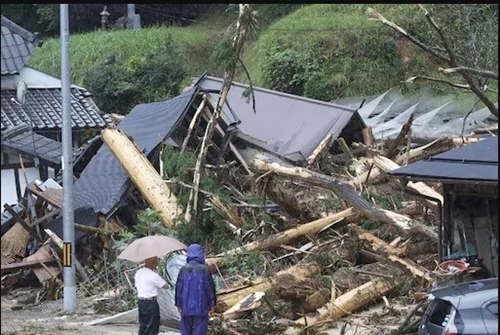August 28, 2023 | 08:59 (GMT+7)
Super typhoon Saola triggers evacuations in Philippines
The Philippines’ rescue force on August 27 said that hundreds of people were forced to leave their homes as floods unleashed by super typhoon Saola swept through mainly rural villages in the Northwestern region of the country.
Saola brushed past the Northeast of the main island of Luzon overnight on August 26 and continued south just off the Pacific coast packing winds of up to 185 kilometers per hour. The typhoon came within 125km of Tuguegarao, a city housing approximately 160,000 residents.
    |
 |
|
Saola brushed past the northeast of the main island of Luzon, Philippines on August 27 and continued south just off the Pacific coast packing winds of up to 185 kilometers per hour. |
Ruelie Rapsing, a rescue official in Cagayan province, described the situation as the rains poured relentlessly overnight. A total of 388 individuals were evacuated from four Cagayan towns, while the water levels in two other towns continued to rise.
The aftermath of the deluge was captured in photos shared on the provincial government’s Facebook page, revealing knee-deep floodwaters inundating homes in the municipality of Aparri.
As the typhoon made its way south along Luzon’s east coast, the state weather service predicted that it would remain in coastal waters without making a direct landfall. This brought some relief to nearby provinces such as Isabela and Aurora, where authorities reported no immediate damage or casualties. However, the threat of heavy rain persists, with the potential to trigger flash floods and landslides.
The Philippines, located in the typhoon-prone Pacific region, experiences an average of 20 major storms annually.
Source: VNA